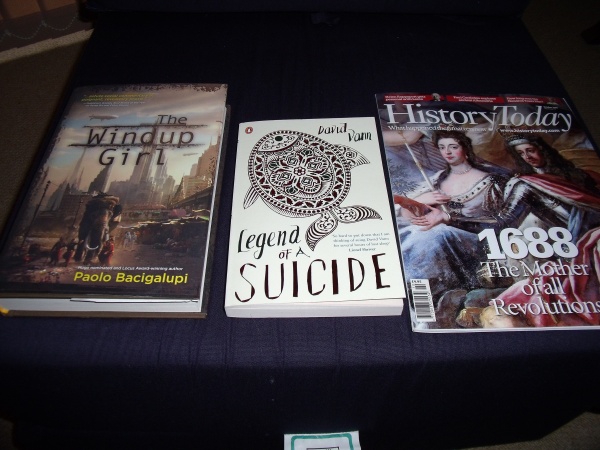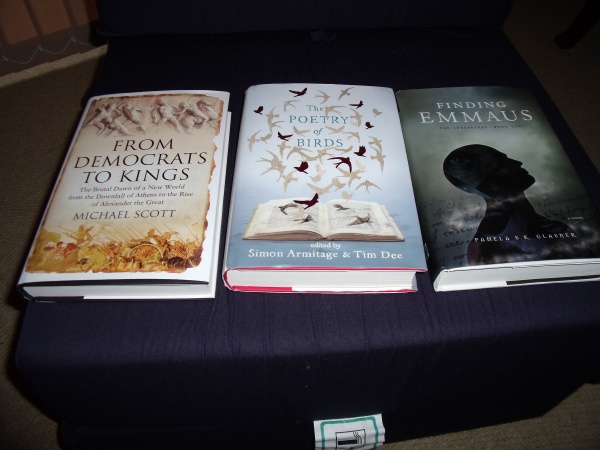This post is about the inclusion (or otherwise) of spoilers in reviews, and was partly inspired by two posts on the subject (here and here) by Paul Kincaid (‘partly’ because I’ve had these thoughts in my mind for a while anyway, without writing them down; and also because this is not intended to be a direct response to Kincaid’s thoughts).
I don’t like spoilers in reviews, and I try to leave them out of mine; but there’s an issue, I think, over what exactly constitutes a spoiler. In my view, revealing plot points or character developments does not equate to spoiling per se; it depends on why a reviewer makes the revelation. I think that a review should try to illuminate the work under discussion, to enrich the reading experience for someone else; and I’ve been known to go as far as quoting the final sentence of a text, with that aim in mind.
What a review shouldn’t do is detract from the reading experience; if it does, that’s what I’d call a spoiler. But here we tread in uncertain waters because, as Kincaid says, people read books in different ways, and what may be a major revelation to one reader may be something another reader has seen many times before. I’ll try to set out my view by using a specific example – The Lord of the Rings.
Is it a spoiler for The Lord of the Rings to say that, by novel’s end, the forces of Sauron are defeated and the One Ring destroyed? I would say not (except perhaps for the most inexperienced of readers), because it’s a convention of this kind of story that “the heroes” will triumph – we expect it to happen, so it’s not really a spoiler to say that it does.
Is it a spoiler for The Lord of the Rings to say that Gollum, not Frodo, is the one ultimately responsible for destroying the Ring, or that the hobbits return to the Shire to find it ruined? I would say yes, because these are events which, to an extent, subvert our expectations of what will happen. Equally, though, there may be readers who would be happy for these to be revealed as illustrations of some of the book’s themes.
Is it a spoiler for The Lord of the Rings to say that Frodo’s resolve is tested whilst he bears the Ring, or that the ultimate defeat of evil is more problematic than the characters could suspect?. These comments hint at the points made above without stating what happens outright; and this is the kind of thing I prefer to do in my reviews. I don’t think these are spoilers, though of course others may disagree.
In the end, we all have to decide where to draw our own line when it comes to spoilers. Personally, I’d be wary of revealing major developments, even if they did help explore a point; but I’m also interested in testing the limits of what I think it’s acceptable to reveal. I would always hope, though, that what I write about a book will not spoil it for anyone.
Like this:
Like Loading...
 Finding Emmaus is a beginning. On a prosaic level, it’s the first volume in Pamela Glasner’s ‘Lodestarre’ series; but, more than this, the entire movement of the story is towards putting the pieces in place which (one assumes) will be played out in the rest of the series. The build-up is decent enough, but it leaves the book in an awkward position, as it feels to me that the most interesting stuff is yet to come.
Finding Emmaus is a beginning. On a prosaic level, it’s the first volume in Pamela Glasner’s ‘Lodestarre’ series; but, more than this, the entire movement of the story is towards putting the pieces in place which (one assumes) will be played out in the rest of the series. The build-up is decent enough, but it leaves the book in an awkward position, as it feels to me that the most interesting stuff is yet to come.




 A question, inspired by
A question, inspired by
Recent Comments